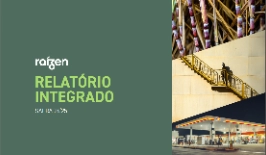Aumenta o tamanho das fontes
Pacto pela Integridade e contra a Corrupção
Somos signatários do Pacto Empresarial pela Integridade e contra a Corrupção – iniciativa criada, conjuntamente, pelo Instituto Ethos, Programa das Nações Unidas para o Desenvolvimento (PNUD), Escritório das Nações Unidas contra Drogas e Crime (UNODC), Fórum Econômico Mundial, Comitê Brasileiro do Pacto Global, entre outros. Além disso, apoiamos o Instituto Combustível Legal, criado a partir de um movimento iniciado pela Plural (antigo Sindicom) para reforçar a importância de um ambiente ético e leal, em que todos paguem corretamente seus tributos e, assim, estimulem a concorrência justa.













 Acessar
Acessar
